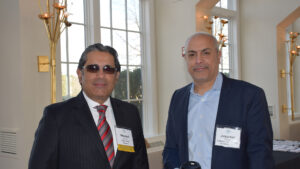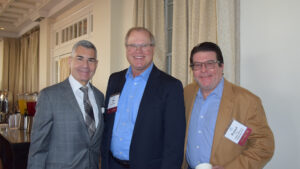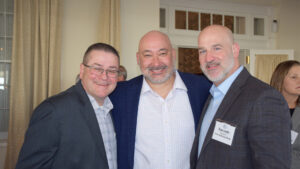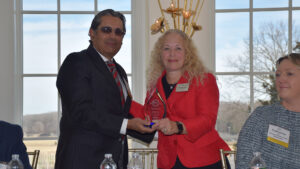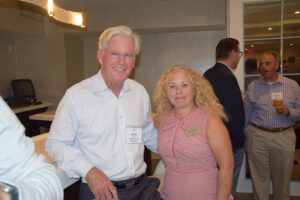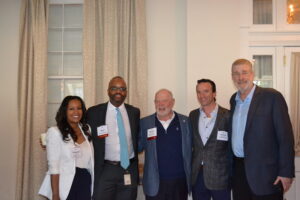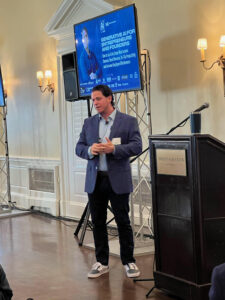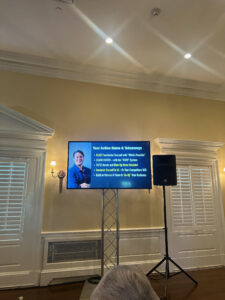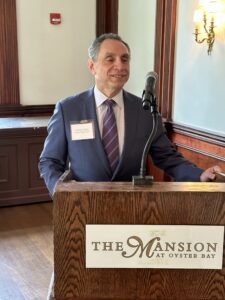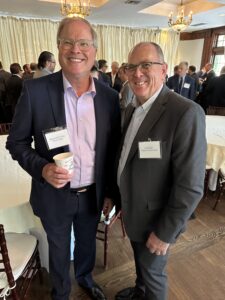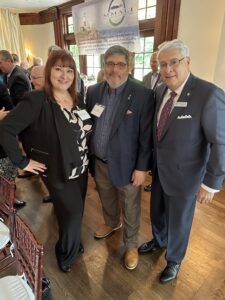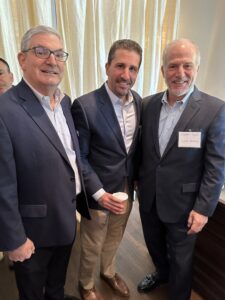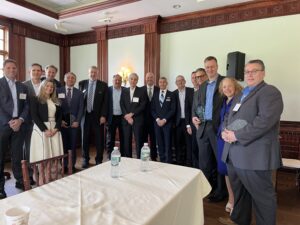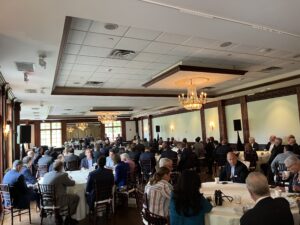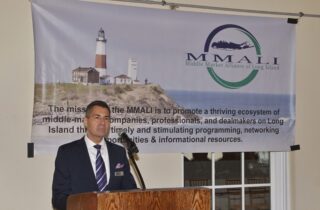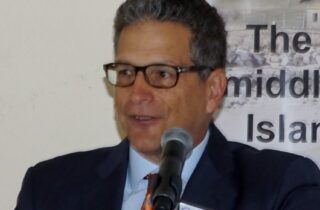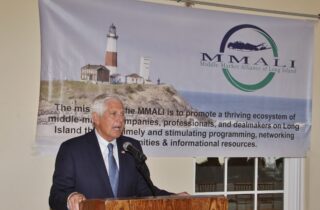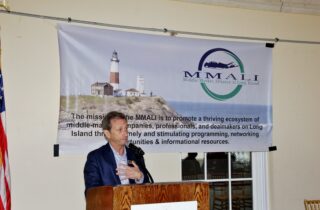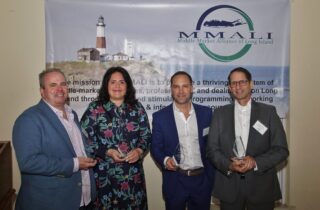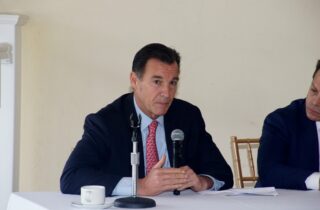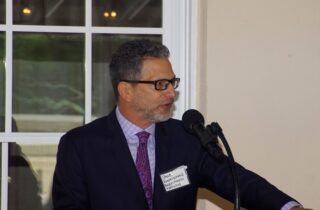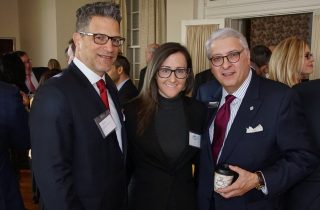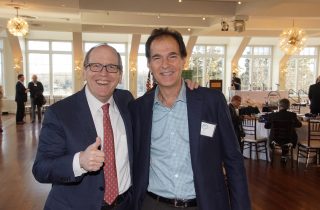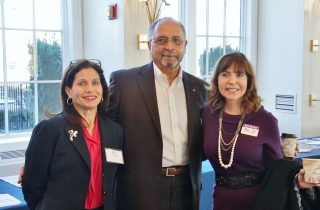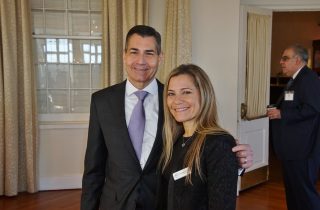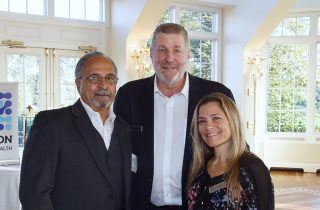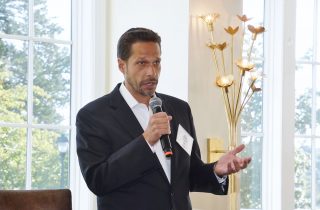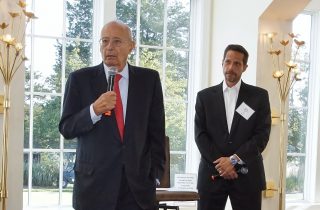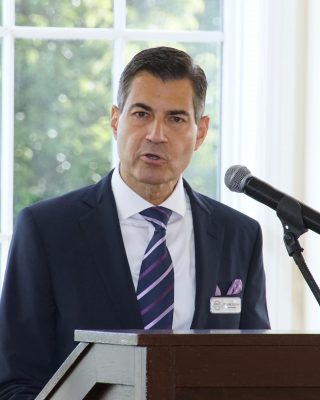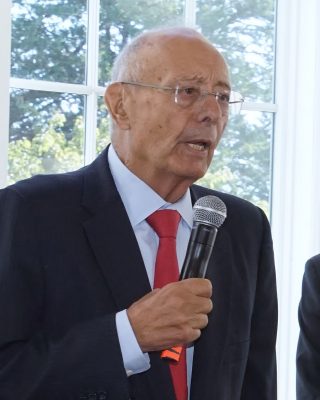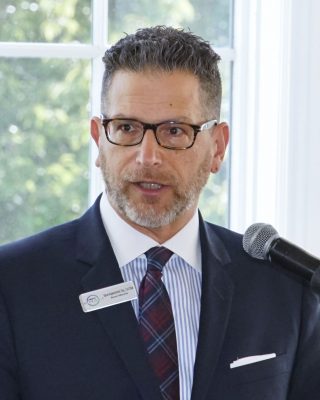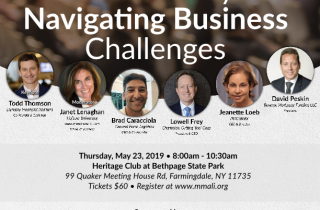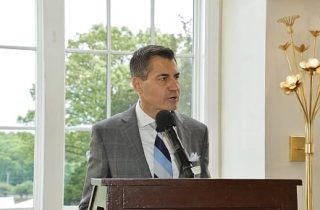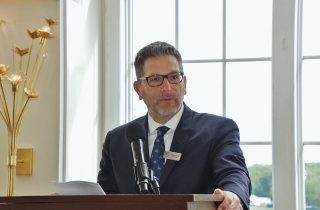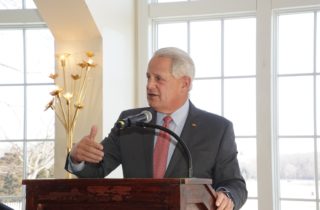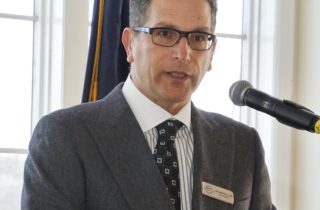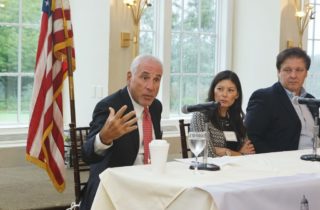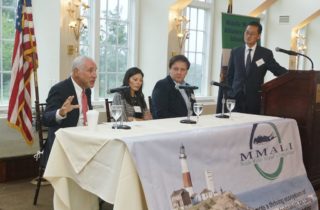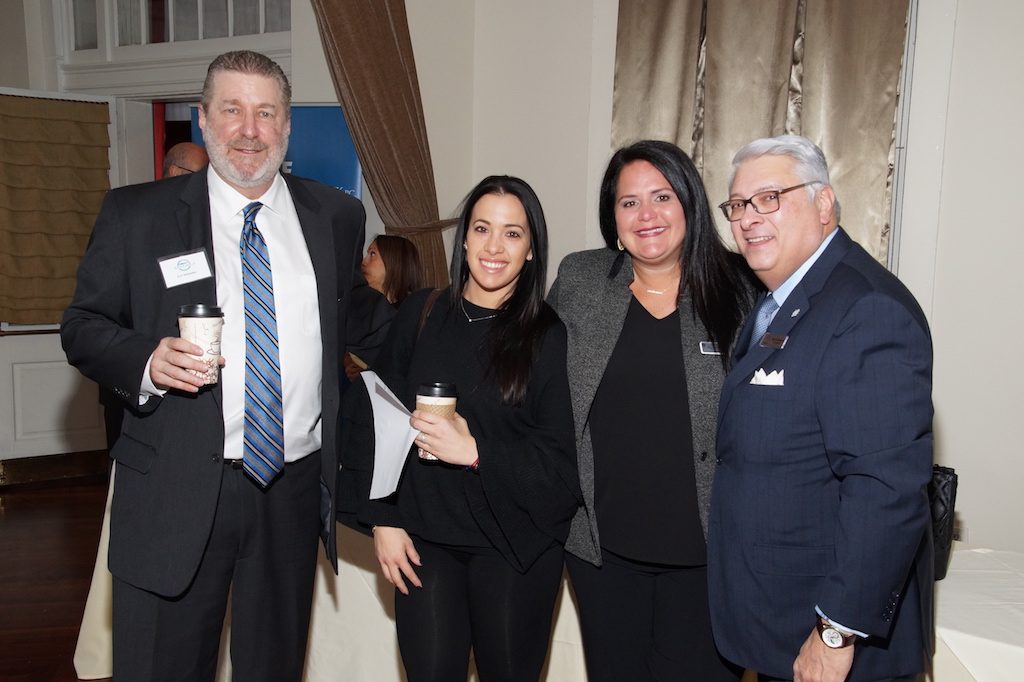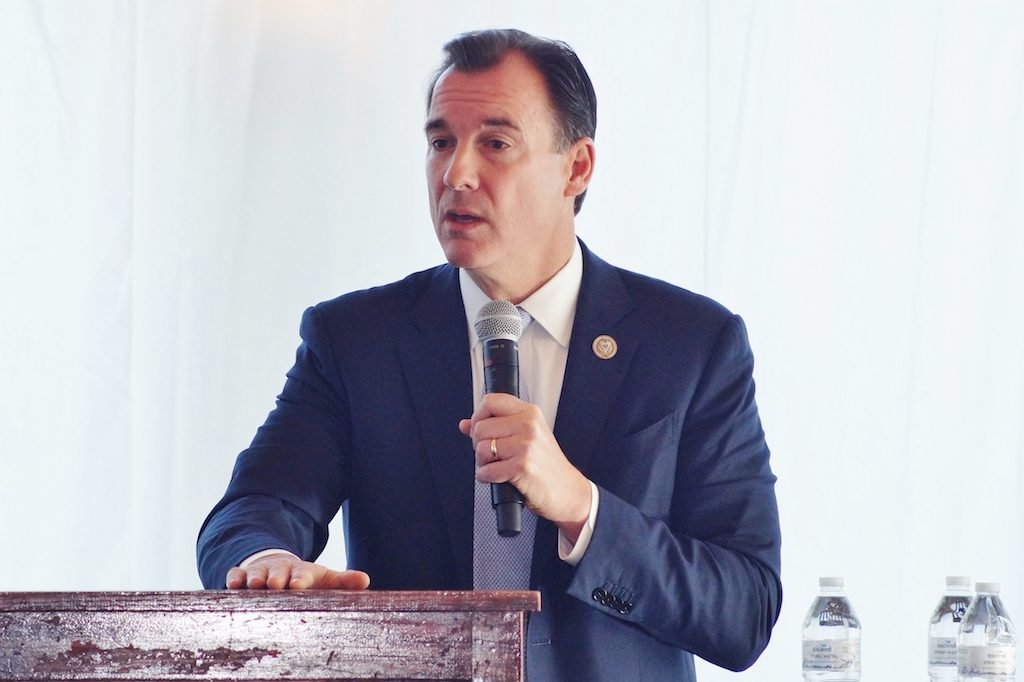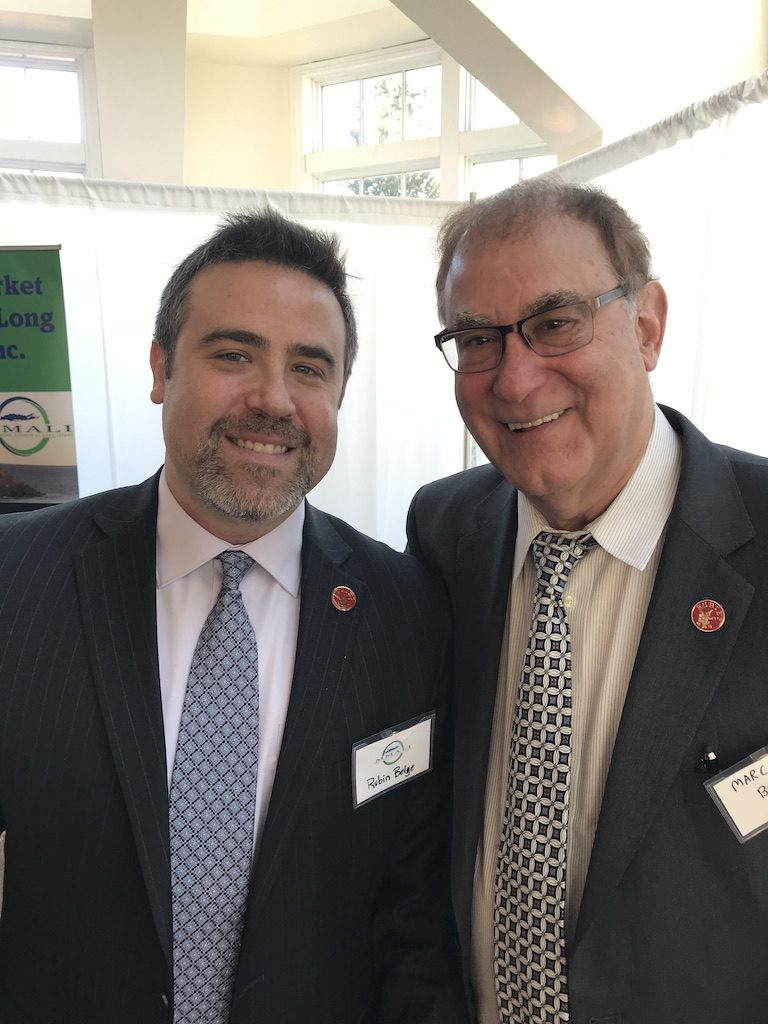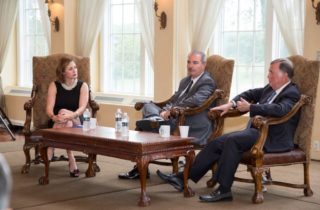Over 150 business leaders and professionals were informed that the solution to the dilemma of losing talented people to work at our companies and live on Long Island is:
Getting involved in public education,
Improving our housing stock by breaking down NIMBISM and thereby adding affordable housing for our talented youth, and
Working together for the greater good.
These were the solutions put forth by Dr. Calvin O. Butts III, President of SUNY Old Westbury, during a very impassioned keynote speech at the MMA LI event this past Thursday. Pointing out that he was here today to discuss the same issue that has faced our region for the last 20 years, since he’s been President of SUNY Old Westbury. So why has it taken so long to address and even attempt to solve this vitally important issue?
Dr. Butts pointed to 3 core reasons:
We have lacked the will to face the challenge,
Our own crazy self-interests always seem to trip us up, and finally,
Our inability to confront our biases and find ways to understand each other and ultimately work together for the greater good.
Referencing how we have survived as a nation by being able to always take what we have and turn it into what we need and thereby succeed as a nation, he called on his audience to do the very same thing to solve this lingering issue. In large part the success our nation has achieved has been by focusing on the greater good and abandoning our self-interests, at least four time.
Dr. Butts continued by saying that we have no hope to build a better nation unless we all work together to keep the “golden door of opportunity” open.
Stating that young people have been drawn beyond Long Island, especially today, because we are now a global society; and historically because of the very high cost of housing. Basically we lose talent because of the cost of housing and we’ve not been able to find a way to build affordable housing to keep and attract the talent we will need to thrive; both socially and economically.
Dr. Butts also cautioned the audience that if we continue worrying about the people who are leaving, we will be forgetting about the people who are already here and those who are indeed coming here. They too have talents to offer and need to be engaged to do so.
He passionately encouraged the business leaders in the audience to get involved in public education at the high school level in their local school districts. Questioning if the school districts have the interest of Long Island in mind or just the interest of the local school districts in mind. He highlighted that unless business leaders begin to educate the educators’ as to what their talent needs are, we face the prospect of the continual loss of talent to more desirable regions. Again highlighting the reality that we oft times think too selfishly which ultimately leads us down the path of NYMBISM.
Dr. Butts’ remarks were followed by a panel discussion which was moderated by Steve Israel, Former Representative to New York in the United States Congress.
Congressman Israel opened up by saying that what brought us here today is the history of Long Island and what we need today is to identify the next big thing and who is going to do it. In order to achieve this we need to change the dynamic order to change our community.
Jobs growth is dependent on a well-educated workforce and once you do that you must get them to live here. You must create an environment that will attract and keep those talented workers. Right now there is an imbalance between demand and supply and we must seize on this opportunity to continue down the path which was forged by Long Islands’ role as the “Cradle of Aviation”. Israel pointed out that NASA did not put a man on the moon but rather it was the men and women who worked at Grumman who did that.
The panel, which consisted of Assemblyman Steve Stern, Patchogue Village Mayor Paul Pontieri, Teresa Ferraro the President of East West Industries and Robert Coughlin co-founder of TRITEC Real Estate, emphasized that the region also needs infrastructure improvements; especially north-south connectors and sewer and septic systems improvements. Robert Coughlin informed the audience that one of the main reasons why TRITEC agreed to partner with Patchogue and help develop over 700 residential units close to and in the downtown area was the fact that Patchogue had excess sewer capacity. He pointed out that currently over 70% of Suffolk county is on a septic system versus a sewer system and this is a great deterrent to further development.
The panel also greatly supported Dr. Butts’ call to get involved with public education, concluding that our schools are not preparing students who do not want to go to college for the jobs that are available to them in our region. But while there are jobs here to be filled it’s difficult for the workers to live here due to the lack of affordable housing which other regions readily offer.
Teresa Ferrara was especially direct on these issues. She stated we need to get educators, administrators and curriculum writers out to the industries to see what they need in order to teach the skills required for the students to get jobs. Further, in addition to improving the housing stock and improving transportation, she called for the “silent majority to start “out-shouting” the loud minority”.
The panel concluded their comments on this vital topic with some insights into which Industries are positioned to carry forward for the economic success of Long Island. Those industries are primarily technology, especially cyber security, data analytics, and artificial intelligence. Additionally aerospace, based on the number of Cradle of Aviation manufacturers which are still headquartered on Long Island, and green energy/sustainable energy which of course would need to be financially viable.
The MMA LI will be holding its next event on Tuesday, April 30th, which has a working title of “Surviving Your and Your Business’ Mid-life Crisis”.

















